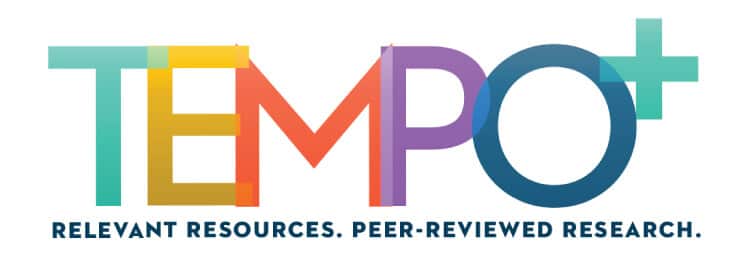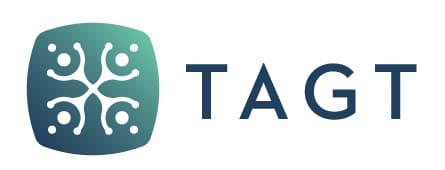The Top 10 Questions a Principal Should Ask About a Campus G/T Program in 2020-2021 PDF
Why should a principal ask themselves the questions that follow about their campus G/T program? House Bill 3 introduced certification reporting for gifted and talented programming. This is a phased-in process, and at the district-level data will be collected from many sources. All certification requirements for this year that involve campuses are complete (insert sigh of relief). However, principals should be aware of the standards that are in phase two, which will require campus-level attention and evidence gathering over the next school year.
Just a friendly reminder: Campuses must follow the guidelines in the Texas State Plan for the Education of Gifted/Talented Students (Texas Education Agency [TEA], 2019) in full. However, the following standards are only the ones in which evidence must be gathered and submitted next year. Incidentally, these standards are the equivalent of the minimum standards set in 2009, so there likely not much concern or work to do.
Questions to Ask
Question 1: Do all students have the chance to be assessed for G/T identification at least once per school year (2.15)?
Question 2: Do all students, no matter their classification or special educational need, have access to G/T assessments and services? Were all referred students assessed?
- This means that accommodations for physical, learning, or behavioral disabilities are provided to the fullest extent possible (2.24).
Question 3: If your campus offers kindergarten, did identified kindergarten students receive services on or before March 1 (2.16)?
Question 4: If identification is completed at the campus level, does your campus selection committee meet in person to review individual student data? Does the committee include three campus or district educators who have at least 6 hours of G/T training in the nature and needs of gifted learners?
- It is not recommended that the principal serve on this committee, as they are the designated decision maker if there is a parent appeal to the campus decision (2.26).
Question 5: Are gifted services offered in the four core content areas during the school day and for the entire school year? Do you notify parents about the campus service plan (3.1, 4.1)?
Question 6: As part of your campus G/T program, are students given the chance to work grouped with other gifted students and independently (3.4)?
- Note that a group is defined as a minimum of three students. A group should be composed of gifted students that are assigned to a classroom where a minimum of 30% or more of the classroom roster is made up of their G/T peers. In addition, if G/T students are provided services in the regular classroom, students must be assured an array of learning opportunities that are commensurate with their abilities and that emphasize content in the four foundation curricular areas throughout the school year (TAC §89.3(1) and (3); State Plan 3.1).
Question 7: Are students who have been identified as gifted participating in experiences that build and result in advanced-level performances or products as part of their services, like those provided through the Texas Performance Standards Project (4.3)?
Question 8: Are students identified as gifted (at any grade level) provided the opportunity to accelerate in individual subject areas of strength (4.5)?
Question 9: Does the campus improvement plan include recommendations on improving G/T services (4.8)?
Question 10: Have all staff members who provide G/T services completed the required training?
- Teachers who provide G/T services in the four core content subjects should have 30 hours of foundational G/T training (lifetime) and be current with an annual 6 hours of updated G/T training (5.1, 5.2).
- The 30 hours must be completed before the assignment to the position. In special circumstances, teachers without the required training must obtain this within one semester (5.2).
- All campus counselors and administrators who oversee any component of gifted services (individual students, subject areas, etc.) should have a minimum of 6 hours of professional learning in the nature and needs of gifted students and service options for G/T students. Counselors must also have professional learning in social-emotional learning (5.8, 5.9).
Reflect
As you review your campus program, use the following questions to help you reflect upon your program and gather your data:
- Who are the main campus personnel responsible for G/T services?
- What do I want for my learners identified as G/T?
- Do I have concerns about being able to meet the above requirements?
- Do I have concerns during a school year likely affected by closures with likely moves to blended and virtual learning?
- What are the G/T services at present? How might they change due to COVID-19?
- What provisions for G/T services do I have in my crisis plan in case of upcoming school closures or mandatory remote learning?
- Who can I reach out to for guidance?
- What are some steps I need to take?
Meredith Austin, Ed.D., is a bold educational leader determined to ensure that every child has the chance to learn something new every day. Her professional experience in gifted education was rooted as a founding teacher at the Gifted & Talented Academy in Pearland ISD and developed further while serving as a district specialist. Presently, she is the Coordinator of Gifted & Talented Education in Humble ISD and serves on the Texas Education Agency Commissioner’s Advisory Council on the Education of Gifted/ Talented Students and as the Vice-Chair for the Texas Association for the Gifted & Talented (TAGT) Membership Involvement Committee. Meredith received her doctorate in education from the University of St. Thomas in Houston, where she researched leaders’ attitudes towards gifted education.






